Culture, Tourism, Europe and External Affairs Committee
Culture, Tourism, Europe and External Affairs Committee Annual Report 2020-21
Introduction
This report covers the work of the Culture, Tourism, Europe and External Affairs Committee during the parliamentary year from 12 May 2020 to 24 March 2021 (when the Parliament went into Election Recess prior to the Scottish Parliament election on 6 May 2021).
The Committee's work during the parliamentary year primarily focussed on the impact of COVID-19 on Scotland's culture and tourism sectors and on the negotiation of the future relationship between the European Union and the UK Government and subsequently on the EU-UK Trade and Co-operation Agreement.
Meetings
During the reporting period, the Committee met 34 times. Of these 34 meetings, 33 were held remotely using video conference technology. The Committee met once in the Parliament in a hybrid session with some participants attending in person and some attending online.
1 meeting was held wholly in public;
No meetings were held wholly in private; and
33 meetings were held partly in private.
Committee business usually tends to be taken in private when draft reports and evidence previously heard are being considered. During the 2020-21 parliamentary year, the Committee met for a total of 5,005 minutes. Of which, 3,920 minutes (78%) were in public.

Membership Changes
The membership of the Committee has changed over the parliamentary year as follows:
On 20 August 2020, Dean Lockhart replaced Gordon Lindhurst.
On 16 September 2020, Stewart Stevenson replaced Stuart McMillan.
On 3 December 2020, Christine Grahame replaced Annabelle Ewing.
On 23 December 2020, Jamie Halcro Johnston replaced Oliver Mundell.
Inquiries
Impact of COVID-19 on Scotland's Cultural and Tourism Sectors
In April 2020, the Committee began scrutiny of the impact of the COVID-19 pandemic on the Scottish culture and tourism sectors. To inform scrutiny, the Committee launched a call for views, receiving over 100 responses. The Committee held regular meetings with the Scottish Government, stakeholders and public bodies such as Creative Scotland to scrutinise the pandemic response and wrote regularly to both the UK and Scottish Governments to highlight key issues.
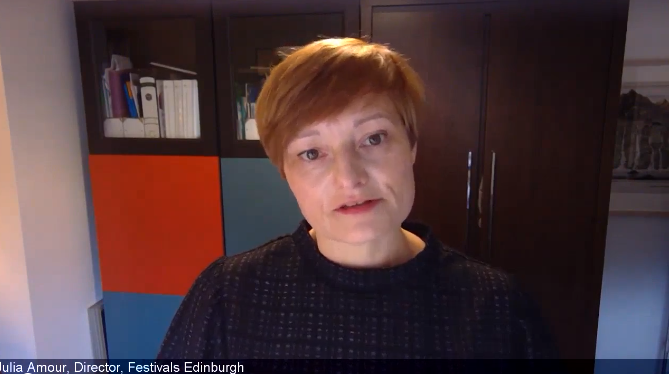
In light of the ongoing challenges posed by COVID-19, the Committee agreed to focus its 2021/22 budget scrutiny on the pandemic response, highlighting outstanding areas of concern and looking ahead to recovery. Full details of the Committee's scrutiny of the impact of the Covid-19 pandemic upon the culture and tourism sectors can be accessed at—
https://www.parliament.scot/parliamentarybusiness/CurrentCommittees/115008.aspx.
Due to the on-going evolution of the pandemic and impact on both sectors, the Committee's session 5 legacy report highlighted the need for a successor Committee(s) to continue to look at this important issue. The Committee’s legacy report can be accessed at—
Negotiation of the Future Relationship Between the European Union and the UK Government
The Committee scrutinised the future relationship negotiations between the European Union and the UK Government over the course of 2020. The Committee took evidence from sectors of the Scottish economy likely to be significantly impacted by the outcome of the future relationship negotiations. The Committee also regularly corresponded with the Scottish and UK Governments to highlight the key issues that were raised during the evidence sessions.
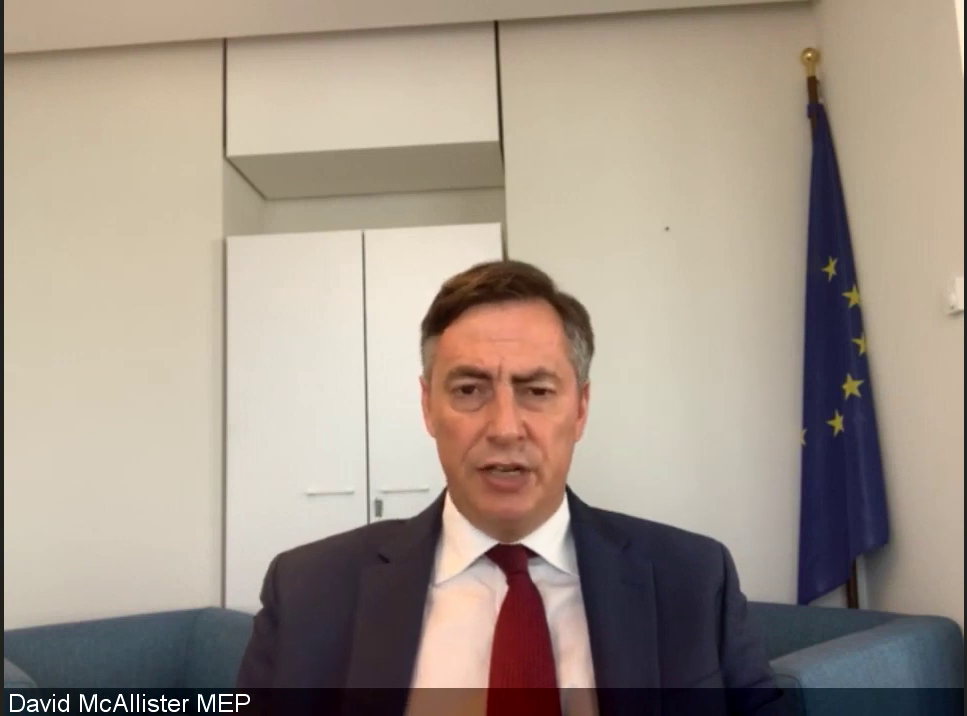
Full details of the Committee's scrutiny of the future relationship negotiations, including details of the evidence sessions held, meeting and briefing papers and meeting transcripts can be accessed at—
https://www.parliament.scot/parliamentarybusiness/CurrentCommittees/114740.aspx.
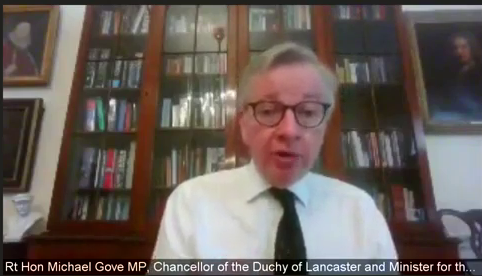
The Committee's report on the implications of the end of the transition period can be accessed at—
European Union (Future Relationship Bill) - Legislative Consent Memorandum
The Committee took evidence on 30 December 2020 from the Cabinet Secretary for the Constitution, Europe and External Affairs on a legislative consent memorandum in relation to the European Union (Future Relationship Bill).
The Committee's response to the legislative consent memorandum is available at—
https://www.parliament.scot/S5_European/Inquiries/20201230_EUFutureRelationshipLCMResponse.pdf.
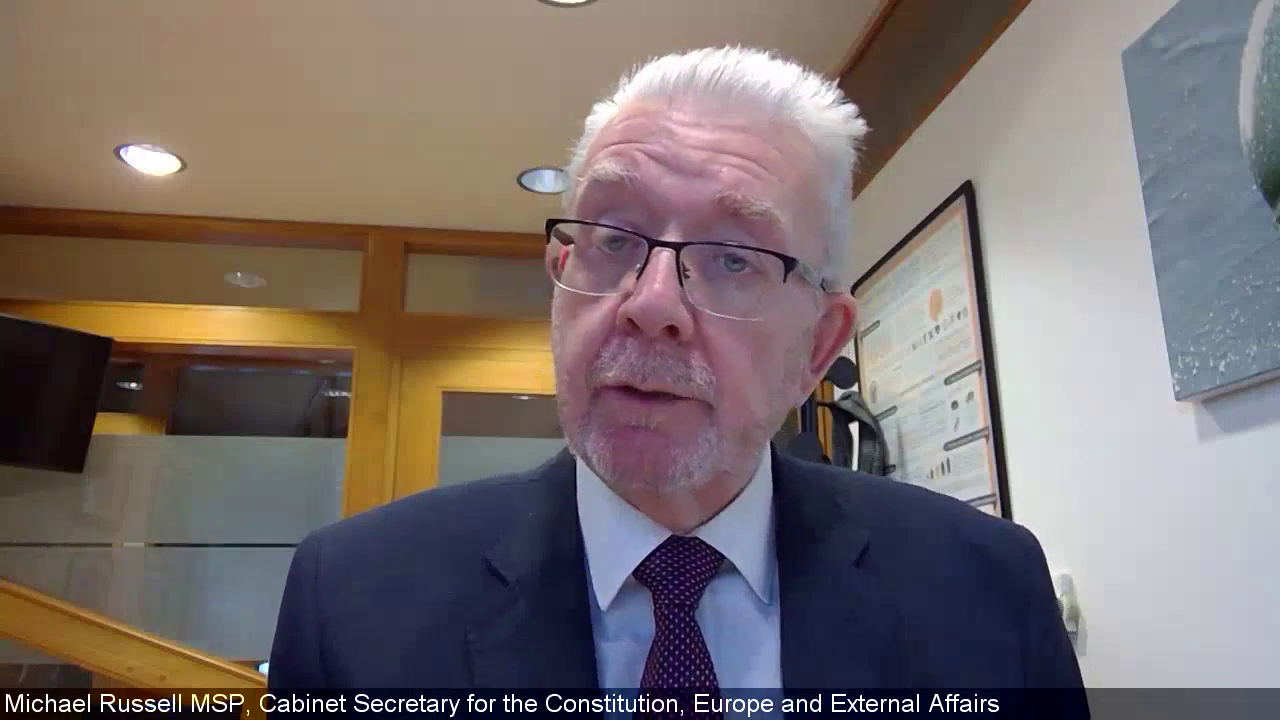
EU-UK Trade and Co-Operation Agreement
The European Commission and the UK Government reached a trade and co-operation Agreement (TCA) on 24 December 2020. The Committee agreed to take further evidence on the content of the TCA and, in particular, from a range of stakeholders representing sectors of the economy which will be impacted by the new EU-UK trading relationship established by the TCA on 1 January 2021.
Details of the Committee's scrutiny of the TCA, including transcripts of evidence sessions, meeting and briefing papers and related correspondence areavailable at—
https://www.parliament.scot/parliamentarybusiness/CurrentCommittees/114740.aspx.
As a result of the evidence taken, the Committee's legacy report highlighted a number of issues arising from the initial implementation and content of the TCA for consideration by a successor Committee.
The Committee has been supported in its work by two advisers:
Dr Fabian Zuleeg, Chief Executive, European Policy Centre, Adviser on EU Constitutional Law; and
Dr Anna Jerzewska, Director, Trade and Borders, Adviser on International Trade.
External Research
The Committee commissioned external research from Dr Anna Jerzewska on the checks that are carried out on goods imported into the European Union. The research considers the customs checks that are required both at the border and away from the border and at a range of physical settings including land borders, ports and airports. The research considers these checks in relation to a range of trading relationships that the EU has with a variety of third countries including Norway, Iceland, Switzerland, Turkey, Ukraine, Canada, Japan and Australia and the Faroe Islands. The report can be accessed at—
https://www.parliament.scot/S5_European/Inquiries/20200901_CTEEA_ExternalResearch.pdf.
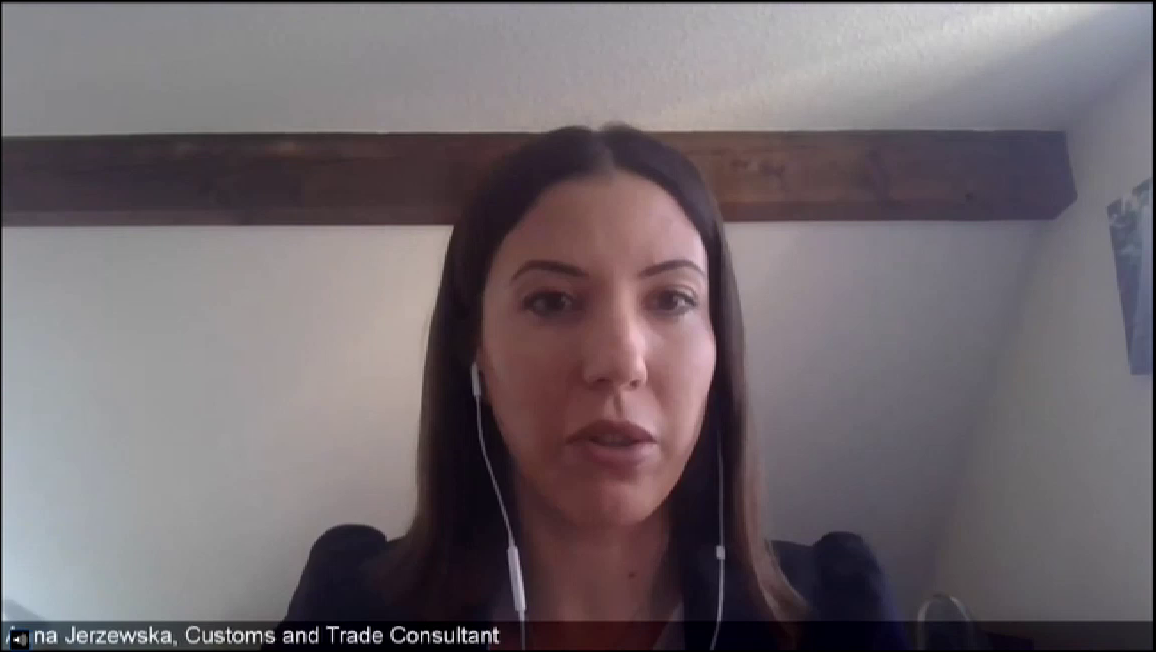
Immigration
The Committee has scrutinised the issue of immigration policy over the course of the current parliamentary session. During the 2020-21 parliamentary year, the Committee took evidence from the Scottish Government's Minister for Public Finance and Migration and from the UK Government's Minister for Future Borders and Immigration. The Committee also continued to correspond with both the Scottish and UK Governments in relation to the key issues raised during the evidence sessions. Full details of the Committee's scrutiny is available at—
https://www.parliament.scot/parliamentarybusiness/CurrentCommittees/105354.aspx.
Other Evidence Sessions
Sustainability of the Newspaper Industry and the Impact of COVID-19 on Print Journalism
Following the publication in February 2019 of Dame Frances Cairncross's The Cairncross Review: a sustainable future for journalism and correspondence received by the Committee from the Chair of the NUJ Edinburgh Freelance Branch highlighting the challenges faced by Scotland's national titles and local newspapers in recent years, the Committee took evidence from a panel of stakeholders on 1 October 2020. The evidence session considered the industry pre-pandemic, the impact of the pandemic and the possible future direction of the industry so that it can deal with the long-term challenges it is facing and still contribute to a well-functioning democracy.
Public Sector Broadcasters and Commissioning
Building on the Committee's 2018 inquiry into the Scottish screen sector, the Committee held an evidence session with Scottish production companies on 8 October 2020. The purpose of the evidence session was to discuss the role of Public Sector Broadcasters and, in particular, the BBC when it comes to commissioning content in Scotland.
BBC Annual Report and Accounts
The Committee maintained its interest in the work and governance of the BBC in Scotland, taking evidence from senior BBC officials on 29 October 2020. The evidence session focused on the BBC's Annual Report and Accounts, the BBC Scotland channel and commissioning.
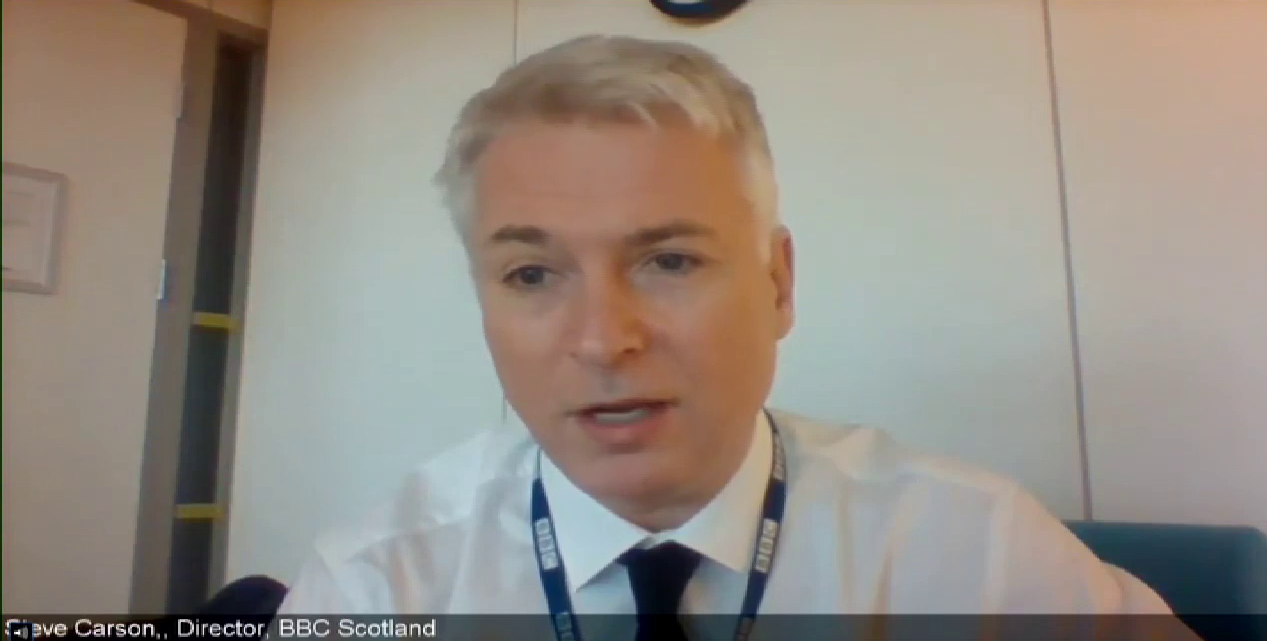
Scottish Government's Review of International Development
Following a Parliamentary debate on 6 October 2020 on the review of the Scottish Government's approach to international development in light of COVID-19, the Convener wrote to the Minister for Europe and International Development to request more detail on the review. The Committee took evidence from the Minister for Europe and International Development on the review on 3 December 2020.
Full details of the Committee's scrutiny, including correspondence to and from the Scottish Government, meeting and briefing papers and written submissions from stakeholders for the evidence session on 3 December 2020 can be accessed at—
https://www.parliament.scot/parliamentarybusiness/CurrentCommittees/116465.aspx.
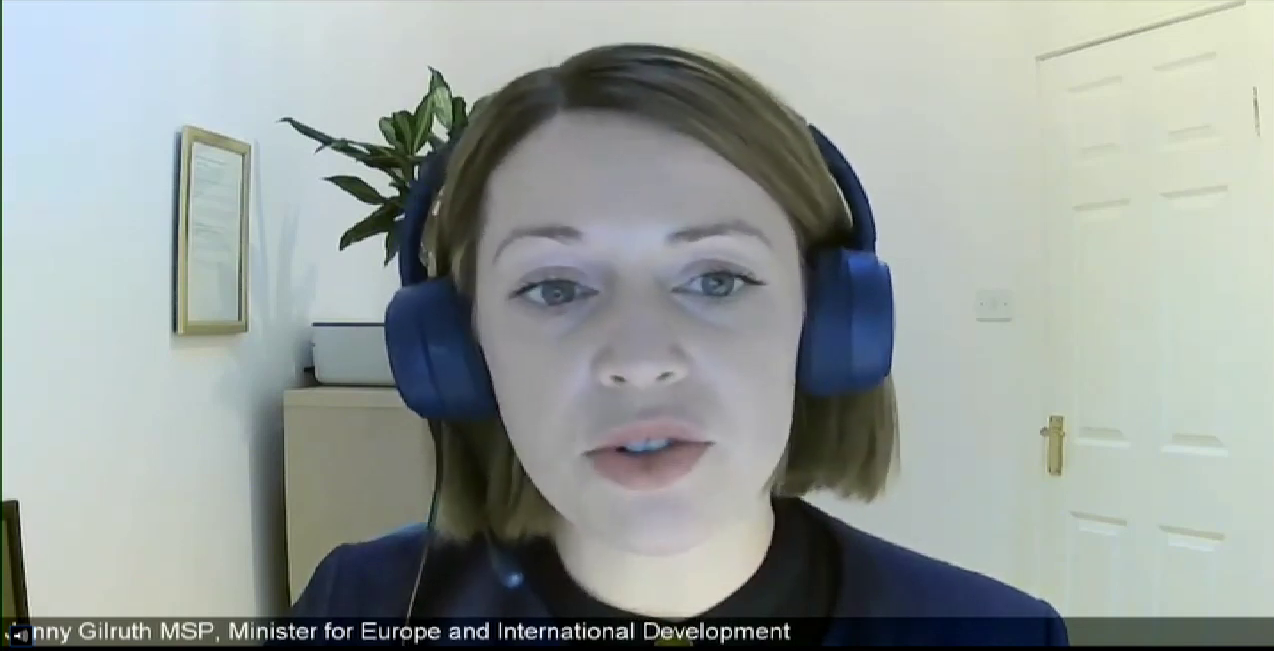
Subordinate Legislation
The Census (Scotland) Amendment Order 2020 (Draft)
The Census (Scotland) Amendment Order 2020 (draft) was laid in the Scottish Parliament on 17 September 2020. The purpose of the Order was to change the date on which the next census will be taken to 20 March 2022.
The Committee took evidence on the Order from the Cabinet Secretary for Economy, Fair Work and Culture on 29 October 2020. Following the evidence session, the Committee agreed motion S5M-22767 in the name of the Cabinet Secretary to recommend that the Order be approved.
The Census (Scotland) Amendment Regulations 2020
The Census (Scotland) Amendment Regulations 2020 was laid in the Scottish Parliament on 21 December 2020. The purpose of the Regulations was to amend the arrangements enabling the Census (Scotland) Order 2020 to be carried into effect, reflecting the change made by the Census (Scotland) Amendment Order 2020 to the date on which the next Census will be taken to 20 March 2022.
The Committee considered the Regulations at its meeting on 21 January 2021 and agreed to make no recommendation in relation to the instrument.
The UEFA European Championship (Scotland) Act 2020 (Ticket Touting Offence) (Exceptions for Use of Internet etc.) (Scotland) Regulations 2020 (draft)
The UEFA European Championship (Scotland) Act 2020 (Ticket Touting Offence) (Exceptions for Use of Internet etc.) (Scotland) Regulations 2020 was considered by the Committee on 18 June 2020. The UEFA European Championship (Scotland) Act 2020 (2020 Act) provides the overarching framework governing the Championship, including making it a criminal offence to tout a Championship ticket and these regulations specify circumstances in which making facilities available in connection with electronic communications or the storage of data is, or is not, to be capable of constituting a touting offence.
The Committee took evidence on the Regulations from the Cabinet Secretary for Economy, Fair Work and Culture on 18 June 2020. Following the evidence session, the Committee agreed motion S5M-21917 in the name of the Cabinet Secretary to recommend that the Regulations be approved.
The UEFA European Championship (Scotland) Act 2020 (Trading and Advertising) (Scotland) Regulations (draft)
On 5 March 2020, the Committee recommended approval of the draft UEFA European Championship (Trading and Advertising) (Scotland) Regulations 2020. The Parliament passed the motion at its sitting on 18 March 2020, however due to the COVID-19 pandemic these regulations were not signed by the Minister and so remained in draft.
On 17 March 2020 UEFA announced that the 2020 European Championship would be delayed until 2021. The change in dates meant that changes were required to both primary and secondary legislation in Scotland, and the Scottish Government proposed two changes to the UEFA European Championship 2020 (Scotland) Act as part of the Coronavirus (Scotland) (No.2) Act.
On 16 October 2020, the Scottish Government laid a new instrument which was substantially the same as the previous draft considered by the Committee. The Committee considered and recommended approval of the UEFA European Championship (Trading and Advertising) (Scotland) Regulations 2020 at its meeting on 26 November 2020.
Engagement and Innovation
Due to the COVID-19 pandemic, the Committee's engagement activities were curtailed. However, the Committee adapted to the challenges posed and effectively worked remotely to continue its scrutiny over the parliamentary year. Meeting virtually also enabled the Committee to take evidence from witnesses from a range of geographical locations outwith Scotland who may not otherwise have been able to give evidence if physical travel to Edinburgh had been necessary.
The Committee regularly promoted its work using Twitter and used its account to post video clips of evidence sessions which were of interest to its followers. The Committee also issued regular newsletters to its mailing list of stakeholders to highlight its recent and forthcoming evidence sessions and its reports and relevant items of business.
Gender Equality Statistics
Gender diversity information is included in committee annual reports as part of the Scottish Parliament's Witness Diversity Action Plan. During the parliamentary year, of 110 witness appearances before the Committee, 65% were male and 35% were female.